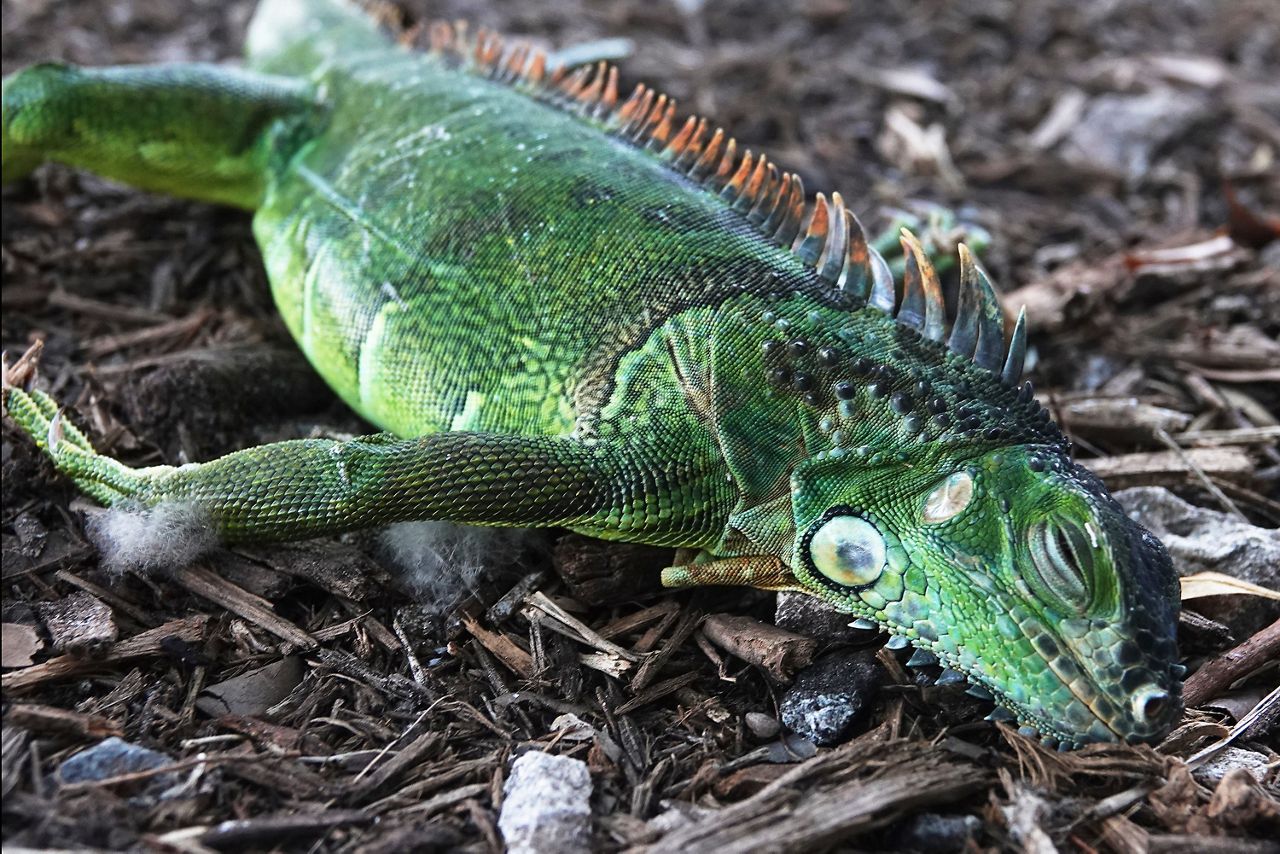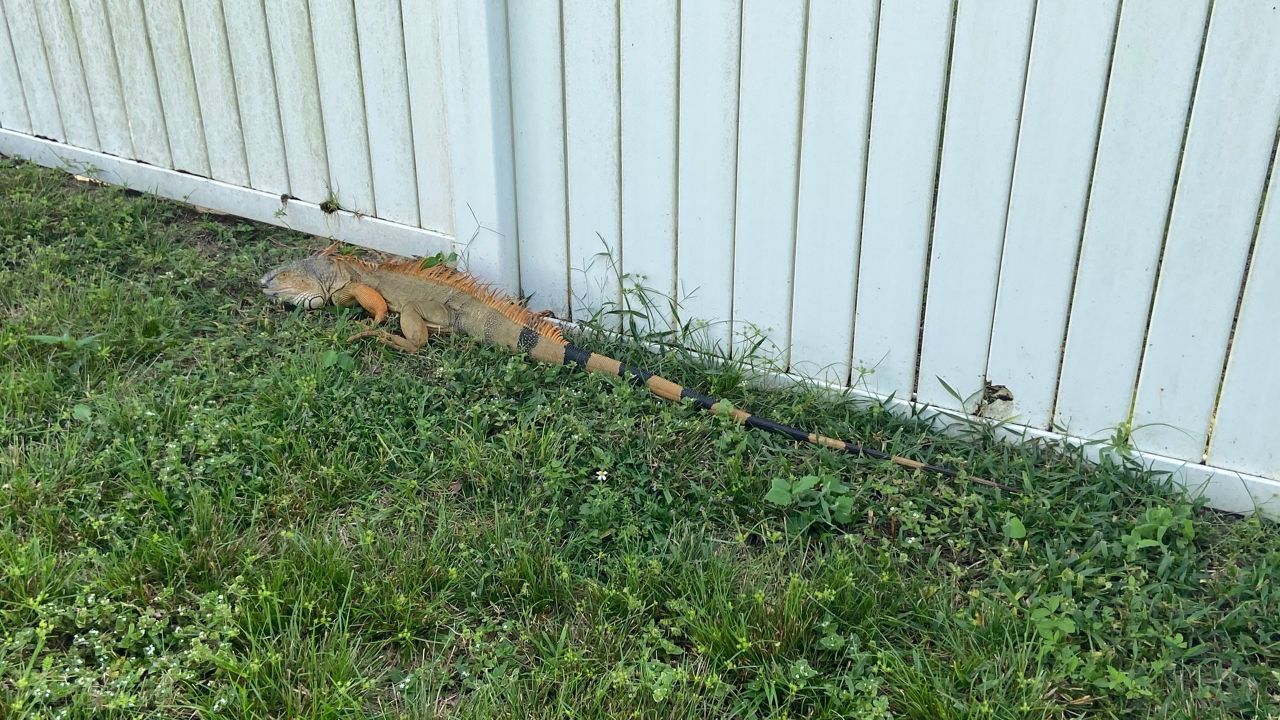As we enter the cooler months and temperatures start to drop, there’s one hazard you may not have considered: falling iguanas.
Iguanas are native to southern Mexico, central Brazil, Paraguay, Bolivia, and parts of the Caribbean. With the help of human assistance, iguanas were first introduced to the United States in 1966.
They either hopped aboard a boat coming to the U.S. or were brought in as pets and have since become an invasive species over the years. There’s a reason these large lizards live mainly in tropical climates.
Being cold-blooded, iguanas cannot survive in colder climates and typically stay in south Florida or the Rio Grande Valley of Texas. They have been spotted recently, however, in Central Florida.
With a warmer-than-average summer, iguanas may have been able to migrate a little further north than usual. This could become a problem this winter as temperatures start to drop.
Back in January of this year, a cold snap in Florida caused temperatures to plummet below 40 degrees. This was the case as far south as Miami, where the iguana population is high.
Pictures began circulating on social media of immobile iguanas lying belly-up. These reptiles actually start to freeze and become sluggish with temperatures only as low as 50 degrees.

As temperatures continue to fall, they become paralyzed. If this occurs while they are up in a tree, it can be hazardous to an unaware passersby below, as the heavy lizards lose their grip and fall from their perches.
The National Weather Service in Miami issues an advisory for the possibility of falling iguanas.
If you happen upon an immobile iguana, it’s best to keep your distance. Once they begin to thaw out, they can become aggressive and bite or scratch.
Iguanas over two feet will typically survive a short-lived cold snap. If the cold persists, or if the iguana is smaller, they can have lasting effects or even end up dying.
The winter outlook shows a warmer than average winter in Florida, so hopefully, we can get through the season without it raining iguanas.



